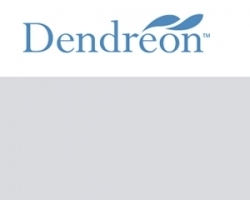The U.S. Food and Drug Administration approved a Seal Beach biotech factory on Wednesday, June 29, according to a statement issued by Dendreon Corporation.
Dendreon is a Seattle-based pharmaceutical company. The Seal Beach factory includes 36 workstations, and Dendreon will bring these on line in a staged approach.
It is not yet known when the Seal Beach plant will be 100 percent operational.
This is potential good news for the city’s revenues. Dendreon makes only one approved product: Provenge, a treatment that “teaches” a terminally ill prostate cancer patient’s blood to fight the disease with the patient’s own immune system. According to some media reports, Provenge costs $93,000 per treatment with three treatments per patient.
About the factory
As previously reported in the Sun, the factory is a 180,000-square foot facility that will operate 24 hours a day when it is fully operational. It is expected to create several hundred jobs.
In 2009, Greg Schiffman, a senior vice president with Dendreon Corporation, told the Sun: “We chose Seal Beach due to the rich, biotech-centered talent pool and its proximity to LAX, which will ultimately help us better serve advanced prostate cancer patients on the West Coast.”
The Seal Beach factory was not always a sure thing.
Even as Dendreon applied to Seal Beach for conditional use permits to build the factory, the company was asking the Food and Drug Administration to approve Provenge for commercial production.
The FDA finally approved the product in April 2010.
The FDA rejected the first Provenge license application in May 2007.
Dendreon also has a Provenge factory in Georgia.
About Provenge
Studies funded by Dendreon indicate Provenge may add three months to a patient’s life with comparatively mild side-effects. However, there is evidence Provenge patients may be at risk of having a stroke.
According to the company, in four clinical trials of Provenge in prostate cancer patients, strokes were observed in 3.5 percent of patients in the Provenge group compared with 2.6 percent of patients in the control group.
In addition other news, the Centers for Medicare and Medicaid Services issued a final National Coverage Decision for Provenge on June 30, 2011, requiring Medicare contractors to cover the use of Provenge. The decision will standardize coverage processes across the country for all Medicare patients with terminal prostate cancer. The decision is important because few people have the money to pay for Provenge treatments.
Provenge was issued a product-specific “Q-code” effective July 1, which allows for electronic submission of claims and is expected to accelerate time to pay physicians.
It is not yet known what impact the federal debt crisis will have on Medicare’s ability to cover terminally ill men.
In related news, a Dendreon press release says the company offers support programs to help eligible patients seeking access to the treatment through-grants to independent foundations and establishment of patient assistance programs for uninsured patients. Dendreon provides grants to independently run foundations providing qualifying patients with financial assistance for co-pays, co-insurance, and treatment-related travel costs.
“These significant achievements support broad access to Provenge, the foundation of care for men with asymptomatic or minimally symptomatic metastatic castrate resistant prostate cancer,” said Mitchell H. Gold, M.D., president and chief executive officer of Dendreon. “The increased capacity and positive National Coverage Decision by CMS in conjunction with the patient assistance programs will ensure patients who may benefit from treatment with Provenge have increased access to it.”
For more information, visit www.provenge.com or call 1-877-336-3736.
Provenge was approved by the U.S. Food and Drug Administration in April 2010 as the first cellular immunotherapy for the treatment of terminal prostate cancer. The safety evaluation of Provenge was based on 601 prostate cancer patients in four clinical trials who underwent at least one procedure.
The most common adverse events (incidence greater than or equal to 15 percent) reported in patients in the Provenge group are chills, fatigue, fever, back pain, nausea, joint ache, and headache.
Serious adverse events reported in patients in the Provenge group include acute infusion reactions (occurring within one day of infusion) and strokes. Reactions included chills, fever, fatigue, asthenia, dyspnea, hypoxia, bronchospasm, dizziness, headache, hypertension, muscle ache, nausea, and vomiting. Dendreon will conduct a registry of approximately 1,500 patients to further evaluate the stroke issue.
According to the American Cancer Society, prostate cancer is the most common non-skin cancer in men in the United States and the third most common cancer worldwide. More than 2 million men in the United States have prostate cancer, with an estimated 240,890 new cases and approximately 33,720 men expected to die from the disease in 2011.












